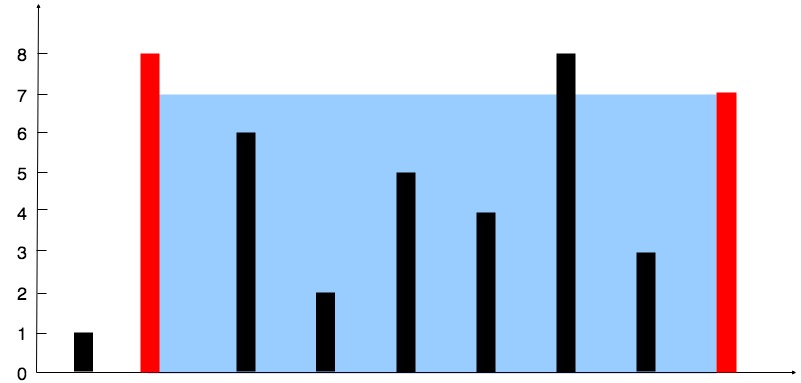Given n non-negative integers a1, a2, …, an , where each represents a point at coordinate (i, ai). n vertical lines are drawn such that the two endpoints of line i is at (i, ai) and (i, 0). Find two lines, which together with x-axis forms a container, such that the container contains the most water.
Note: You may not slant the container and n is at least 2.

The above vertical lines are represented by array [1,8,6,2,5,4,8,3,7]. In this case, the max area of water (blue section) the container can contain is 49.
Example:
Input: [1,8,6,2,5,4,8,3,7]
Output: 49
My solution:
First I can see that I should start out initial checking from both ends,
because heuristically the larger the width the more water can be contained.
I will assign an index to each end, and then multiply the lower end by the index difference
and store the value as a max.
Next I'll compare the indexes values height and the one that is less in height I will regress it
torwards the other one unless the difference is less than 1.
class Solution {
public:
int maxArea(vector<int>& height) {
int max_water =0;
int n = height.size();
int i = 0;
int j = n-1;
while(i<j){
max_water = max(max_water, (j-i)*(min(height[i], height[j])));
if(height[i]<height[j]){
i++;
}else j--;
}
return max_water;
}
};
Complexity Analysis:
Time Complexity - O(n) because at most a full n pass.
Space Complexity - constant O(n) because only there are just the 4 vars to keep.
 LinkedIn
LinkedIn
Comments are closed, but trackbacks and pingbacks are open.